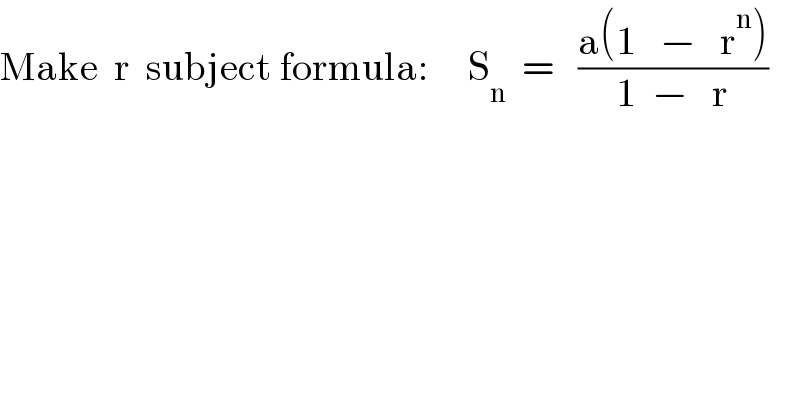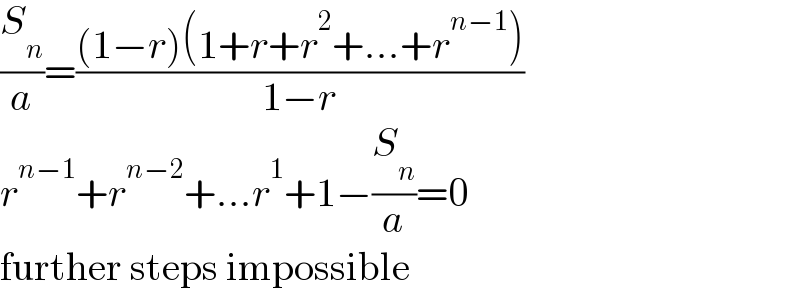
Question and Answers Forum
Previous in Matrices and Determinants Next in Matrices and Determinants
Question Number 139104 by I want to learn more last updated on 22/Apr/21

Commented by mr W last updated on 22/Apr/21

Commented by I want to learn more last updated on 22/Apr/21

Commented by I want to learn more last updated on 23/Apr/21

Commented by MJS_new last updated on 23/Apr/21

Answered by MJS_new last updated on 22/Apr/21

Commented by I want to learn more last updated on 23/Apr/21

